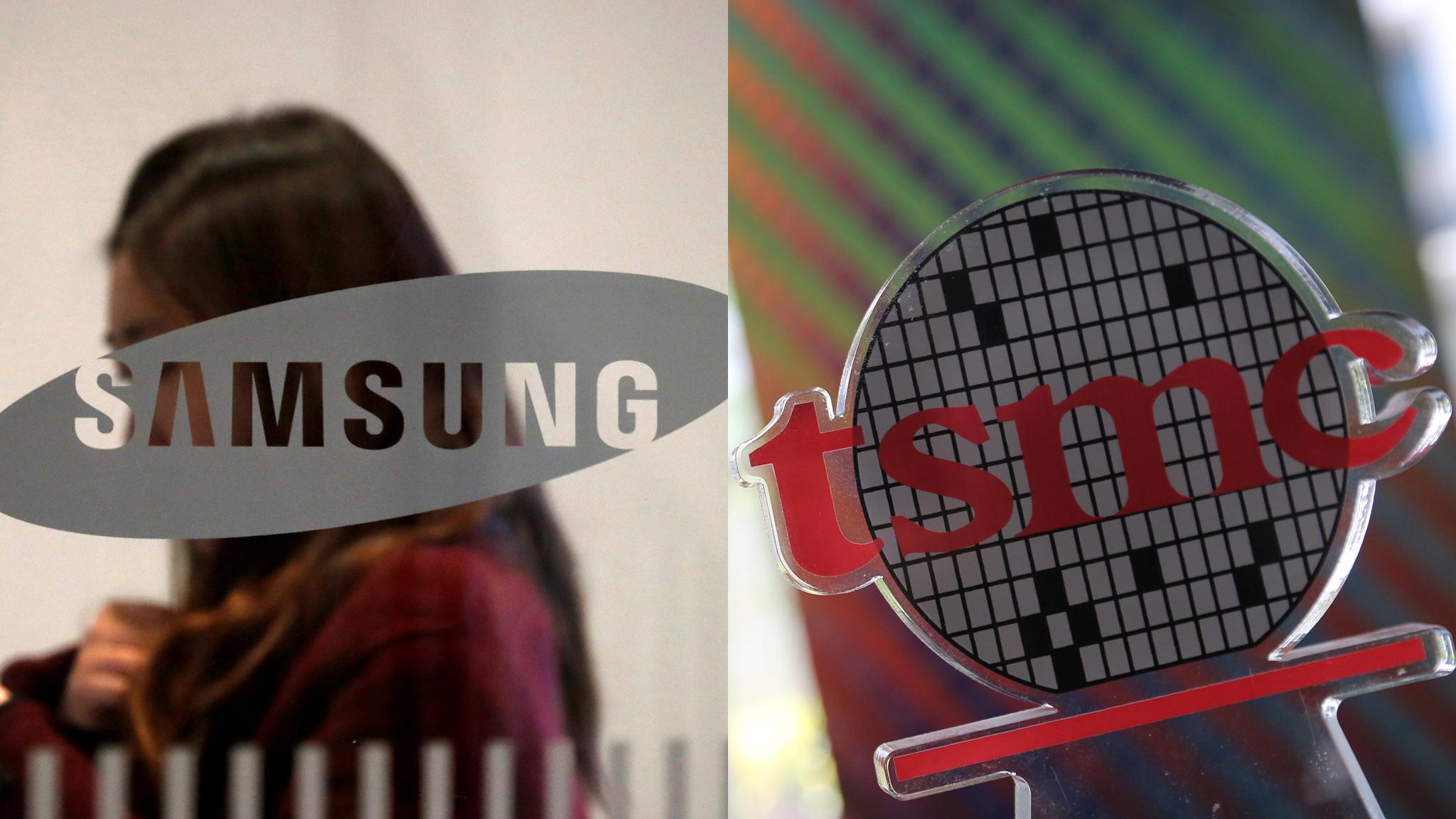Taiwan Semiconductor Manufacturing Co. (TSMC)’s strategic partnership with Japanese chipmakers could threaten the status of Samsung Electronics, which is struggling to catch up with the bigger rival, according to analysts.
Japan has signed off on a 37-billion-yen semiconductor research project to develop cutting-edge chip technology in the country that would have about 20 Japanese companies, including Hitachi High-Tech Corp., working with TSMC.
The Japanese government will pay over half of the cost.
Backed by Japan’s Ministry of Economy, Trade, and Industry, the project is focusing on research and development of chip packaging, which is the final stage of semiconductor device fabrication.
The construction of facilities will start around September, with full-scale R&D projects expected to kick off in 2022.
The partnership with TSMC will bolster the Japanese firms, which are strong in chip components, equipment, and NAND flash memory fabrication, but laggards in the foundry market, where chipmakers make chips for fabless companies and chip designing firms.
The Japanese government also wants Sony Corp. to enhance ties with TSMC in the image sensor segment, according to media reports.
TSMC’s foundry market share increased from 54 percent to 55 percent, widening its lead over Samsung to 38 percent.
Samsung's market share fell from 18 percent in the fourth quarter last year to 17 percent in the first quarter due to the temporary shutdown of its Austin chip plant.
To compound Samsung's woes, electronics companies, one of its key customers for chips, are seen reducing their production due to a shortage of system chips such as display driver ICs (DDIs) and microcontroller units (MCUs).
While Samsung has been aggressively expanding facilities in its quest for global leadership, its 10 trillion won-a-year expenditure to develop its foundry technology pales in comparison to TSMC’s 30 trillion won-a-year investment.
There's also an industry outlook that the global demand for memory chips, Samsung's mainstay products, may not be as strong as forecast.



 India–U.S. Interim Trade Pact Cuts Auto Tariffs but Leaves Tesla Out
India–U.S. Interim Trade Pact Cuts Auto Tariffs but Leaves Tesla Out  Trump’s Inflation Claims Clash With Voters’ Cost-of-Living Reality
Trump’s Inflation Claims Clash With Voters’ Cost-of-Living Reality  Dollar Near Two-Week High as Stock Rout, AI Concerns and Global Events Drive Market Volatility
Dollar Near Two-Week High as Stock Rout, AI Concerns and Global Events Drive Market Volatility  Alphabet’s Massive AI Spending Surge Signals Confidence in Google’s Growth Engine
Alphabet’s Massive AI Spending Surge Signals Confidence in Google’s Growth Engine  Vietnam’s Trade Surplus With US Jumps as Exports Surge and China Imports Hit Record
Vietnam’s Trade Surplus With US Jumps as Exports Surge and China Imports Hit Record  Samsung Electronics Shares Jump on HBM4 Mass Production Report
Samsung Electronics Shares Jump on HBM4 Mass Production Report  SoftBank and Intel Partner to Develop Next-Generation Memory Chips for AI Data Centers
SoftBank and Intel Partner to Develop Next-Generation Memory Chips for AI Data Centers  Toyota’s Surprise CEO Change Signals Strategic Shift Amid Global Auto Turmoil
Toyota’s Surprise CEO Change Signals Strategic Shift Amid Global Auto Turmoil  SpaceX Seeks FCC Approval for Massive Solar-Powered Satellite Network to Support AI Data Centers
SpaceX Seeks FCC Approval for Massive Solar-Powered Satellite Network to Support AI Data Centers  Once Upon a Farm Raises Nearly $198 Million in IPO, Valued at Over $724 Million
Once Upon a Farm Raises Nearly $198 Million in IPO, Valued at Over $724 Million  Weight-Loss Drug Ads Take Over the Super Bowl as Pharma Embraces Direct-to-Consumer Marketing
Weight-Loss Drug Ads Take Over the Super Bowl as Pharma Embraces Direct-to-Consumer Marketing  Jensen Huang Urges Taiwan Suppliers to Boost AI Chip Production Amid Surging Demand
Jensen Huang Urges Taiwan Suppliers to Boost AI Chip Production Amid Surging Demand  Elon Musk’s SpaceX Acquires xAI in Historic Deal Uniting Space and Artificial Intelligence
Elon Musk’s SpaceX Acquires xAI in Historic Deal Uniting Space and Artificial Intelligence  DBS Expects Slight Dip in 2026 Net Profit After Q4 Earnings Miss on Lower Interest Margins
DBS Expects Slight Dip in 2026 Net Profit After Q4 Earnings Miss on Lower Interest Margins  Global PC Makers Eye Chinese Memory Chip Suppliers Amid Ongoing Supply Crunch
Global PC Makers Eye Chinese Memory Chip Suppliers Amid Ongoing Supply Crunch  Global Markets Slide as AI, Crypto, and Precious Metals Face Heightened Volatility
Global Markets Slide as AI, Crypto, and Precious Metals Face Heightened Volatility  Oil Prices Slip as U.S.-Iran Talks Ease Middle East Tensions
Oil Prices Slip as U.S.-Iran Talks Ease Middle East Tensions 































